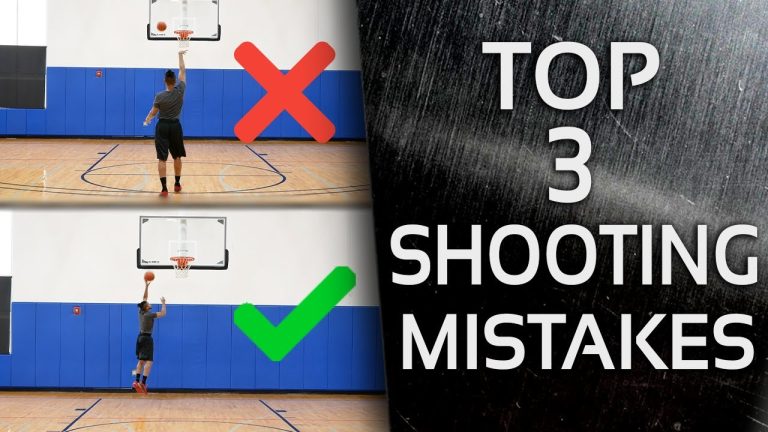In today’s fast-paced world, quick decision-making is crucial, especially during times of transition. Whether it’s adapting to a new job, navigating through personal changes, or making important life choices, the ability to make swift and effective decisions can make all the difference. In this article, we will explore the art of quick decision-making in transition, uncovering strategies and techniques to help you make informed choices with confidence and ease. Get ready to master the art of decisive action and embrace the exciting possibilities that await you.
What is the model used for making quick decisions?
The RAPID decision-making model provides a clear and structured approach to quick decision making. This model defines five key roles that help streamline the decision-making process. The roles include Recommend, Agree, Perform, Input, and Decide. By assigning specific responsibilities to each role, the model ensures that team members know their contribution and the sequence of actions required for effective decision making.
In the RAPID decision-making model, the Recommend role is responsible for creating the proposal or suggestion. This role gathers information, analyzes various options, and presents a recommendation to the team. The Agree role involves obtaining consensus or agreement from all relevant parties before moving forward with the decision. This ensures that everyone is on the same page and supports the chosen course of action.
The Perform role focuses on the execution of the decision. Once the decision is made, this role takes charge of implementing the plan and ensuring that the necessary steps are taken. The Input role involves gathering input and insights from individuals who have relevant expertise or experience. Their input helps inform the decision-making process and ensures that all perspectives are considered. Finally, the Decide role holds the ultimate authority in making the final decision. This role has the power to accept or reject recommendations and is responsible for the final outcome of the decision. Overall, the RAPID decision-making model offers a streamlined and effective approach to quick decision making by assigning clear roles and responsibilities to each team member.
What does fast decision-making mean?
Fast decision-making is the art of taking action swiftly based on the available information. In the heat of the moment, it may be challenging to assess the completeness or significance of the data at hand. However, the true worth of rapid decision-making lies in its ability to prioritize speed over certainty. It is only after making a choice that the consequences and implications become apparent.
The essence of fast decision-making lies in seizing opportunities without hesitation. It is a mindset that values action over analysis, recognizing that in certain situations, time is of the essence. While the level of knowledge may be limited, the urgency to act overrides the need for comprehensive understanding. The key is to trust one’s instincts and have the confidence to make decisions swiftly, knowing that the benefits of timely action often outweigh the uncertainties.
However, it is crucial to remember that the value of fast decision-making is not absolute. Once a choice is made, it is essential to assess its outcomes and learn from them. This reflection allows for continuous improvement and better decision-making in the future. Fast decision-making, therefore, is a dynamic process that balances quick thinking with the ability to adapt and learn from experience.
What does the term rapid decision process refer to?
The rapid decision process, acronymed as RAPID, encompasses five key steps: recommending, agreeing, performing, inputting, and deciding. By following this framework, individuals and teams are able to efficiently analyze potential actions and establish accountability for decision implementation. This structured approach not only streamlines the decision-making process but also ensures that all stakeholders are involved and committed to the final outcome.
Seize the Moment: Unlocking the Power of Quick Decision-Making
Paragraph 1:
In today’s fast-paced world, the ability to make quick decisions has become more crucial than ever. Whether it’s in business, personal life, or even while facing unexpected challenges, seizing the moment can unlock a world of opportunities. By embracing the power of quick decision-making, individuals can gain a competitive edge, navigate uncertainties with confidence, and make the most out of every situation that comes their way.
Paragraph 2:
Quick decision-making is not about impulsive choices, but rather a skill that requires a combination of intuition, experience, and analytical thinking. It involves the ability to assess a situation swiftly, evaluate the available options, and trust one’s instincts. By honing this skill, individuals can streamline their decision-making process, saving valuable time and resources. Moreover, it allows for adaptability and flexibility, enabling individuals to make the necessary adjustments as circumstances evolve.
Paragraph 3:
However, mastering the art of quick decision-making is not without its challenges. The fear of making the wrong choice or missing out on better opportunities can often lead to hesitation and analysis paralysis. To overcome these obstacles, individuals must cultivate self-confidence, embrace calculated risks, and learn from both success and failure. By embracing the power of quick decision-making, individuals can seize the moment, unlock their full potential, and embark on a journey of growth and success.
Decide with Confidence: Mastering Quick Choices in Transitional Moments
Paragraph 1:
In today’s fast-paced world, making quick decisions in transitional moments is crucial. Whether it’s choosing the right career path, making a spontaneous purchase, or deciding on a life-changing opportunity, the ability to make confident choices can greatly impact our lives. By mastering quick choices, we can navigate through transitional moments with ease, ensuring we make the best decisions for ourselves.
Paragraph 2:
Deciding with confidence requires a clear and focused mind. It’s essential to define our values, goals, and priorities beforehand, enabling us to align our choices with what truly matters to us. Taking a moment to reflect on our core values allows us to make decisions that are in line with our authentic selves. By doing so, we can eliminate doubt and hesitation, empowering us to make quick choices in transitional moments without second-guessing ourselves.
Paragraph 3:
To master quick choices, it is also crucial to trust our instincts. Our subconscious mind often holds valuable insights that can guide us towards the right decision. By learning to listen to our intuition, we can tap into a wellspring of wisdom that can help us make confident choices in transitional moments. Embracing our instincts allows us to make bold decisions without fear, knowing that we have considered both rational and intuitive aspects. With practice, we can hone our ability to decide with confidence, ensuring a smoother transition through life’s transitional moments.
Fast Track to Success: Navigating Transitional Moments with Quick Decision-Making
Paragraph 1: In today’s fast-paced world, the ability to make quick decisions is a crucial skill for achieving success. Whether you’re faced with a career transition, a challenging project, or a pivotal life moment, navigating these transitional moments with quick decision-making can be the key to unlocking your full potential. By embracing a proactive mindset and honing your decision-making abilities, you can fast-track your journey towards success and seize every opportunity that comes your way.
Paragraph 2: The power of quick decision-making lies in its ability to propel us forward amidst uncertainty and change. When faced with transitional moments, time becomes a valuable resource, and hesitating or overanalyzing can hinder progress. By making rapid, well-informed decisions, we can stay ahead of the curve and adapt to new circumstances more effectively. Fast decision-making not only allows us to capitalize on opportunities but also helps build resilience and agility, enabling us to navigate through challenges with ease.
Paragraph 3: However, it’s important to note that quick decision-making doesn’t mean hasty or impulsive choices. It requires a balance of intuition, experience, and rational thinking. By developing a systematic approach to decision-making, such as gathering relevant information, assessing risks, and considering potential outcomes, you can make quick yet well-thought-out decisions. The ability to make decisive choices in transitional moments is a valuable skill that can set you apart from others and propel you towards success on your chosen path.
Quick Decisions, Big Impact: Your Guide to Mastering Transitional Moments
Quick Decisions, Big Impact: Your Guide to Mastering Transitional Moments
In a world that moves at lightning speed, mastering transitional moments is essential for success. Whether it’s making split-second decisions or navigating major life changes, our ability to adapt and make quick choices can have a significant impact on our lives. By honing this skill, we can seize opportunities, overcome challenges, and take control of our destiny.
Transitional moments often catch us off guard, demanding immediate action. These moments can range from responding to unforeseen crises to seizing unexpected opportunities. The key to mastering them lies in our ability to stay calm, think critically, and act decisively. By developing a strong foundation of self-awareness and emotional intelligence, we can make informed decisions that align with our values and goals, ensuring that each transitional moment propels us forward instead of holding us back.
However, it’s important to remember that quick decisions are not always synonymous with impulsive actions. Taking the time to gather relevant information, seeking advice from trusted mentors or experts, and considering the potential consequences are essential steps to making impactful choices. By striking a balance between speed and thoughtfulness, we can embrace transitional moments as opportunities for growth, learning, and transformation. With practice, we can turn these moments into catalysts for success, propelling us towards a bright and fulfilling future.
In conclusion, mastering transitional moments is a crucial skill in today’s fast-paced world. By staying calm, thinking critically, and acting decisively, we can navigate unexpected changes, seize opportunities, and shape our own destiny. By remaining mindful of the importance of quick decisions and striking a balance between speed and thoughtfulness, we can transform transitional moments into transformative experiences that propel us towards success.
In a world that demands quick decision-making in transition, the ability to swiftly adapt and respond becomes paramount. As we navigate the ever-changing landscape of life, it is crucial to trust our instincts and embrace the power of decisive action. By honing our judgment and cultivating our intuition, we can confidently face the challenges that lie ahead. So, let us embrace the art of swift decision-making and embark on a journey filled with endless possibilities and remarkable achievements.












